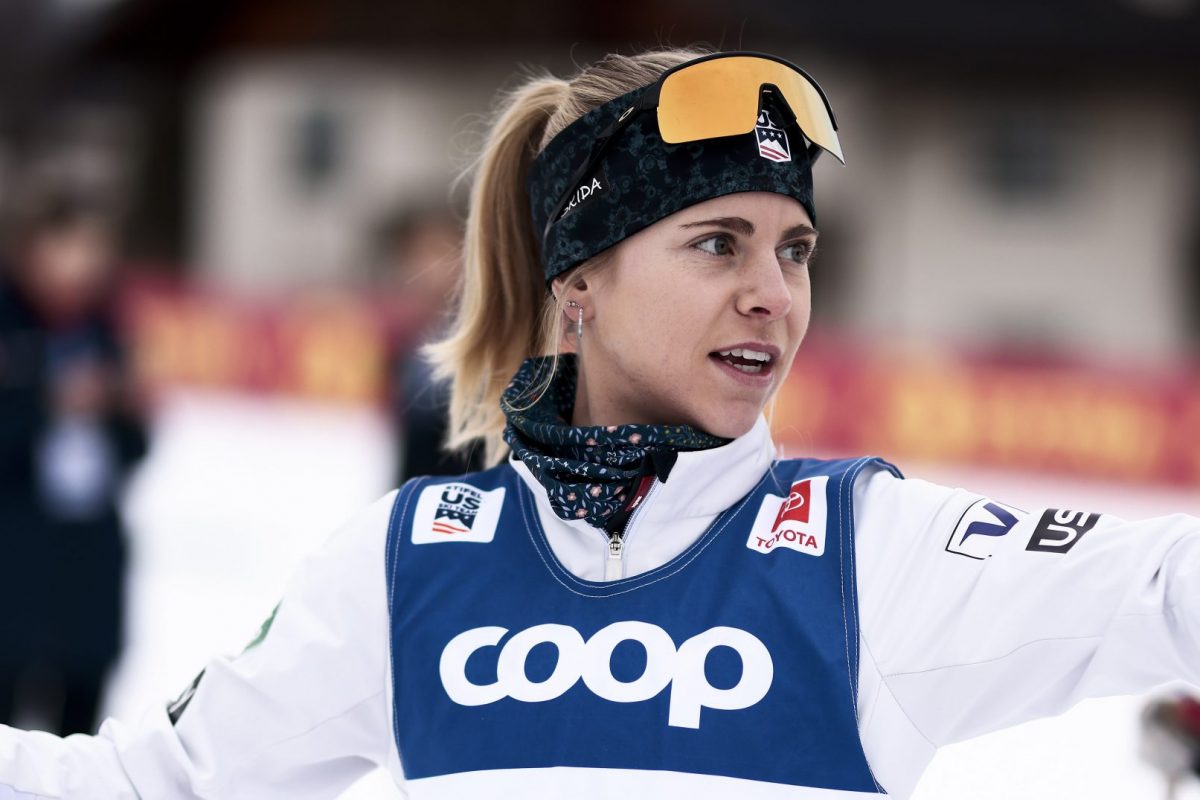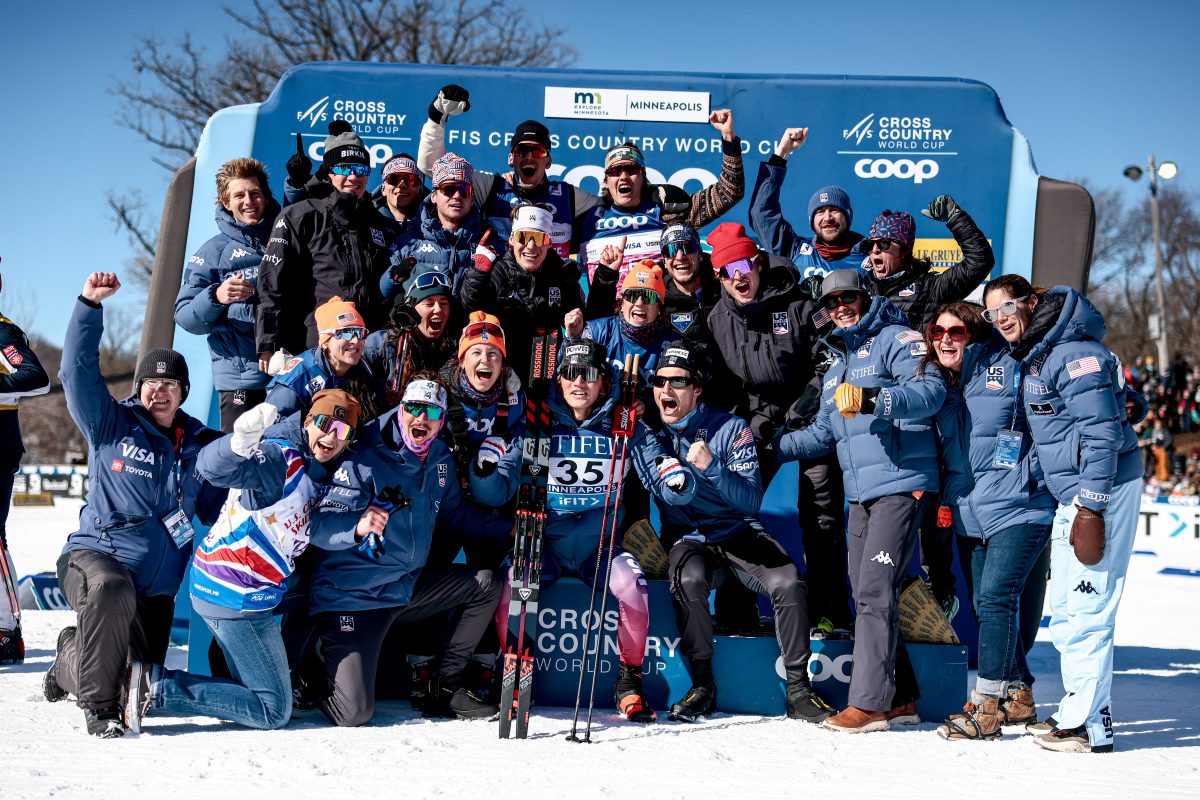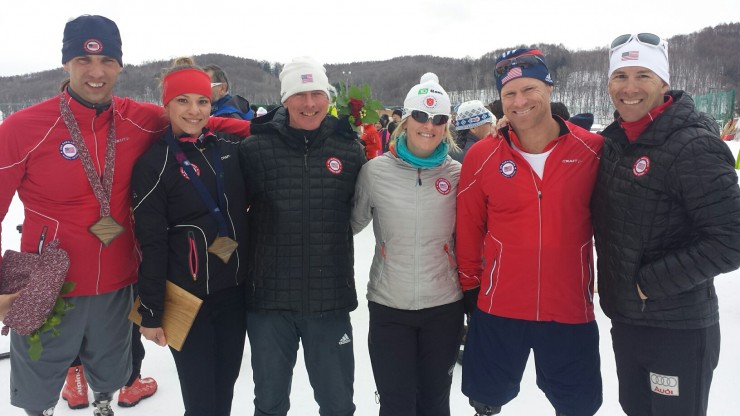
Heading into the last races of the season, the International Paralympic Committee (IPC) World Cup Finals, the U.S. Paralympics Nordic Program is probably used to the weight of carrying several medals around, but its athletes aren’t feeling any pressure.
“I honestly can not believe that I am currently the World Cup leader,” U.S. sit skier Oksana Masters wrote in an email last month after winning two-consecutive World Cup races in Asahikawa, Japan.
In her second year of skiing, the 25-year-old former Paralympic rower went on to win four out of five races in Asahikawa to stay on top of the overall World Cup standings and earn a nomination for IPC Athlete of the Month.
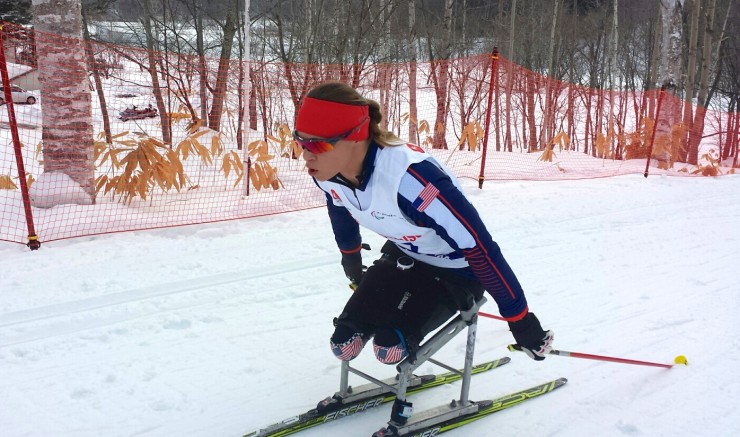
“It’s a great feeling knowing what I have been working on is working,” Masters continued. “I feel like anything can happen … I am just eager to continue to grow as a skier and feeling more confident on the snow.”
At IPC World Championships in January, Masters earned silver in the cross-country middle distance and bronze in the cross-country sprint in Cable, Wis. She was the second-most decorated skier on her team after Andy Soule, who racked up five medals in seven races.
A few weeks beforehand, Masters had to skip U.S. nationals at Soldier Hollow in Midway, Utah. Leading into the championships, she injured her back in training, compressing nerves on the right side while stopping suddenly and aggravating a previous injury from rowing.
“I sat out the whole week of nationals and then that week before Cable, I started to get back on snow,” she explained on the phone in early February. “I was basically on the bed for that week, then afterwards, [I] kind of had to fight off a little bug that I got that week prior to Cable, which happened to turn into bronchitis and walking pneumonia. So World Championships was just more of a mental battle than gonna be just a battle for getting medals, with one setback after another.”
“I didn’t really have much expectations for myself at all considering there’s only so much your body will allow you to do when it’s trying to get back to it’s healthy stage and so [I was] just basically trying to survive at that point,” Masters continued. “Instead of being in the top five or something, I was trying to focus on areas where I need to be focused in any race, which is technical aspects, like turns and transitions, up and over the hill, and kind of take it one race at a time.”
She quickly found her racing form in Cable.
Asked how her first race there felt, she reflected: “Like I was gonna die. I just saw the black light, nothing else … but skiing-wise, it was the first time since about three weeks that I’d basically did anything and pushed my body at that race pace, so that first [biathlon] race was brutal and tough, but at the same time, it got my body more ready and prepared me for the cross-country races and [upcoming] races through that week.”
In total, Masters competed in six events in Cable and explained she was shocked after taking her first medal — bronze — in the sprint.
“Not to fall and to end up with that medal was kind of a relief, but [it] also just brought my focus more towards, OK I had setbacks, but I still can be within the competition and hang with the field, so just believe in the previous training that I’ve done and what I do know and just do it,” she said.
“I’m just doing what I can and focusing on myself. It just so happens to be putting me much higher than I ever could imagine being.” — Oksana Masters (U.S. Paralympics Nordic)
Last year, Masters made herself known as one of the world’s most competitive sit skiers after taking two medals (silver and bronze) at the Sochi Paralympics. She went on to podium in three races at this season’s IPC World Cup opener in Vuokatti, Finland.
Based on her experience in rowing, in which it took her 13 years to medal at the Paralympics (she earned bronze in the double scull in 2012), she appreciated the time it takes to become a veteran of any sport — despite being a new favorite in nordic.
“I’m now that the stage where I respect my competition, of the years they put in to be where they are now,” she said. “I’m playing catchup and I’m just doing what I can and focusing on myself. It just so happens to be putting me much higher than I ever could imagine being.”
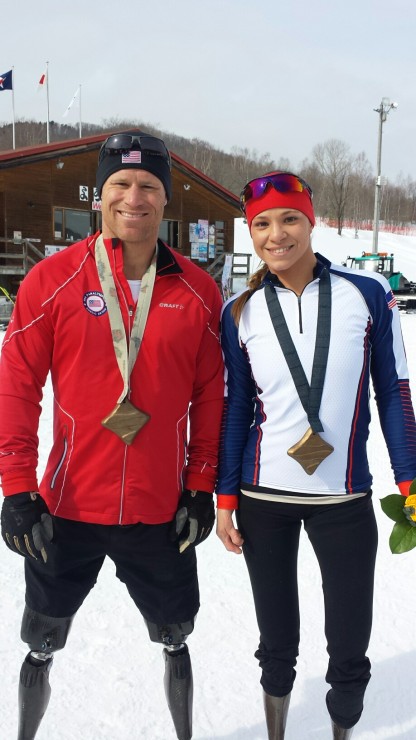
Next week from March 16 to 22, Masters and her teammates will be competing at IPC World Cup Finals in Surnadal, Norway.
“I think our athletes are still feeling fresh and motivated and excited to get another opportunity to race, especially with the full field competing,” U.S. Paralympics High-Performance Coach Eileen Carey wrote in an email. “Our goals will be to continue the process of progress, and squeeze as much as we can from final days on snow this season.”
There’s no ignoring that they’ll be favorites. At the last World Cup in Asahikawa in mid-February, Soule, an Army veteran, won four-straight races. His teammate, Lt. Cmdr. Dan Cnossen won the fifth: the middle-distance cross-country.
“I knew that with a small but strong field there was a good chance for several very good and meaningful finishes,” Soule wrote in an email earlier this month. “The whole week felt great and was an amazing experience. I have never had a string of wins like that, but tried to approach it the same way I do any other race series, taking one day and one race at a time, trying not to think too far ahead.”
With his success in Japan, Soule, 35, rose from third to first in the overall World Cup.
“I am excited to go to Norway and have a good strong finish to the season,” he said.
A biathlon specialist, he’s looking forward to three biathlon events in Norway.
Cnossen pointed out that Soule considered retiring before this season. Soule explained that, because he was doing well at the end of last year and still having a lot of fun, he couldn’t imagine ending his ski career. As of February, Soule said he was committed through the 2018 Paralympics in Pyeongchang, South Korea.
“The mental space he is in is pretty remarkable and I think it has allowed him to relax and let his skills, experience, and love for skiing take over,” Carey explained. “He is aware of the results and knows what he has to do to clinch the World Cup overall, but isn’t letting that distract him from focusing on the basics when he gets to the start line. More than his personal performances, I think he is excited by the team’s performance as a whole.”
While he didn’t have his best performance in the final middle-distance race in Asahikawa, Cnossen did — and Carey wrote that Soule was excited for him.
“It has strengthened him to be a part of the success and progress of the team as a whole,” she added. “The coolest thing about Andy and all our National Team athletes is that they are still very much in progress. They have all made gains this year and all have more to make. It is exciting for all of us as a team to feel the progress but to also see the space for improvements.”
Cnossen, for instance, took a major risk in the last World Cup race in Japan and came out with huge gains.
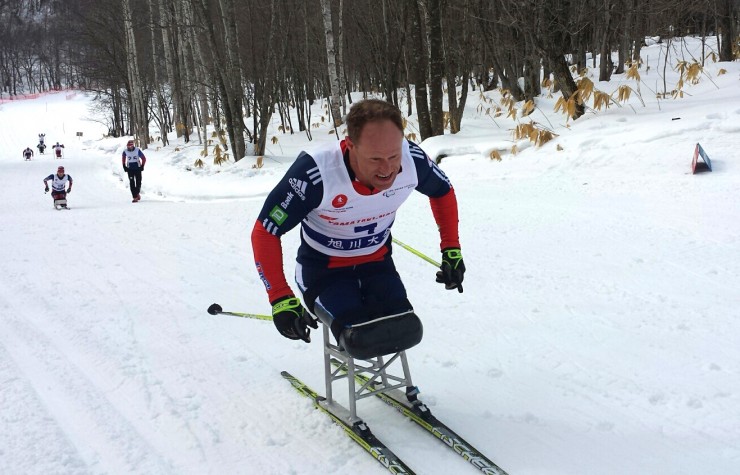
“I decided to ski a hard first lap on the 10km race and see if I could hang on for the remaining three laps,” Cnossen wrote in an email.
“The coaches mentioned during the team meeting the previous night that we should use this World Cup event as an opportunity to take chances without worrying about the finishing result. I wanted to see if skiing an overly-fast first lap, out of four total, would result in an implosion or if I could hang on knowing I’m in with the leaders.”
On the second lap, a Norwegian wax technician told him he was in the lead.
“The US coaches may not have wanted me to know that early!” Cnossen reflected.
He went on to win by 13.4 seconds over Canada’s Chris Klebl. Cnossen spent the better part of the fall and winter in San Diego — not exactly ideal for a winter athlete.
“This season has been a transition for me, with a move [from Colorado] to San Diego in order to out-process from the military,” he explained. “Accordingly, my training time on snow has suffered, so my goal this year is to accumulate as much race experience as possible and work on a relaxed, powerful double pole technique.”
The process, which involves a thorough evaluation by the Veterans Affairs and Departments of Defense, will have taken the 34-year-old Navy SEAL commander six months to complete. Unable to get on snow in southern California, he spent about two to three hours a day training with a Ski Erg or hand cycle, after taking up competitive cycling last summer.
“Now, so close to retiring, I’m able to train in the mornings for a couple hours as I normally would, with a second workout in the afternoon,” he wrote. “I’m going to attempt to travel to Norway one week in advance of my team, which would be ten days ahead of the first competition, to train on snow.”
As for the team on the whole, Carey wrote that she could not be more proud.
“Our athletes have taken being students of the sport to a new level this year,” she wrote. “They enjoy doing the hard and sometimes frustrating work to back up what they are learning. Of course it is motivating to see race results back up the progress. But we are not getting too distracted by the podiums.
“There is a lot of progress left to make so we try to keep sight of that,” she added.
Alex Kochon
Alex Kochon (alexkochon@gmail.com) is a former FasterSkier editor and roving reporter who never really lost touch with the nordic scene. A freelance writer, editor, and outdoor-loving mom of two, she lives in northeastern New York and enjoys adventuring in the Adirondacks. She shares her passion for sports and recreation as the co-founder of "Ride On! Mountain Bike Trail Guide" and a sales and content contributor at Curated.com. When she's not skiing or chasing her kids around, Alex assists authors as a production and marketing coordinator for iPub Global Connection.


